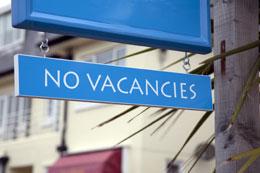Band-Aid solution wont fix the rental crunch

Guest Commentary
By Josef Filipowicz and Steve Lafleur
Vancouver City Council recently voted to ban the listing of secondary residences on short-term rental platforms such as Airbnb.
The hope is that this will make more units available for long-term renters.
With a vacancy rate below 1 per cent, it’s understandable that council is worried about the availability of rental units.
But rather than Band-Aid approaches, it should focus on removing barriers to constructing more housing units rather than policing rental properties.
Ultimately, a tight rental market is the result of a lagging supply of rental units. Long lineups at apartment open-houses raise more questions about what’s preventing units from coming onto the market than why some units are available for shorter terms than others.
In fact, city hall is responsible for one of the main drivers of the imbalance between supply and demand in Vancouver.
According to a recent survey of homebuilders and developers, it takes the better part of two years, on average, to obtain a residential building permit in the city of Vancouver.
Add to this the time required to actually build new units and it’s almost impossible for the housing market to adequately respond to growing demand.
Just across Boundary Road in Burnaby, it takes only a third the time it does in Vancouver to obtain a permit.
Across the Lower Mainland, the average is 10 months. If Vancouver City Hall is serious about boosting the housing supply, there’s clearly room to streamline its approvals process.
Hampering homebuilding doesn’t just affect the number of new units entering the market, but also the number of old units that remain occupied because people can’t move out and up the property ladder.
In short, a tight housing supply becomes everyone’s problem.
Preventing Vancouverites from renting out secondary units may seem politically appealing in the short term, but it does nothing to address the city’s long-term problem—a lagging housing supply.
Until this fundamental imbalance is addressed—starting with more efficient land-use regulations—low vacancies and high rents won’t go away any time soon.
Josef Filipowicz and Steve Lafleur are Senior Policy Analysts at the Fraser Institute.
Vancouver’s new short-term rental rules at a glance
The new regulations will come into effect April 2018.
Residents will be able to apply for and receive a short-term rental licence online. Licences will cost $49 and there will be a one-time administrative fee of $54.
Rentals in principal residences - for both owners and renters - will be able to be legally rented for periods of less than 30 days at a time.
A principal residence is where someone lives most of the year, pays their bills, cooks their meals and receives government mail.
Long-term rentals are any rentals over 30 days at a time. A long-term rental could be one month, three months, a year, etc.
Secondary suites, laneway homes and investment properties can only be rented short-term by a principal resident, which may include a long-term renter.
Secondary suites, laneway homes and investment properties can be rented for periods as short as 30 days at a time.
Until the regulations come into effect, short-term rentals remain illegal in Vancouver, unless they are in a licensed hotel or bed and breakfast.
The City will continue to enforce illegal short-term rentals, with a focus on commercial listings, unsafe listings and illegal dwelling units (e.g. vans) and nuisance properties.
Residents can report problem short-term rentals by calling 3-1-1 or using the VanConnect app.









